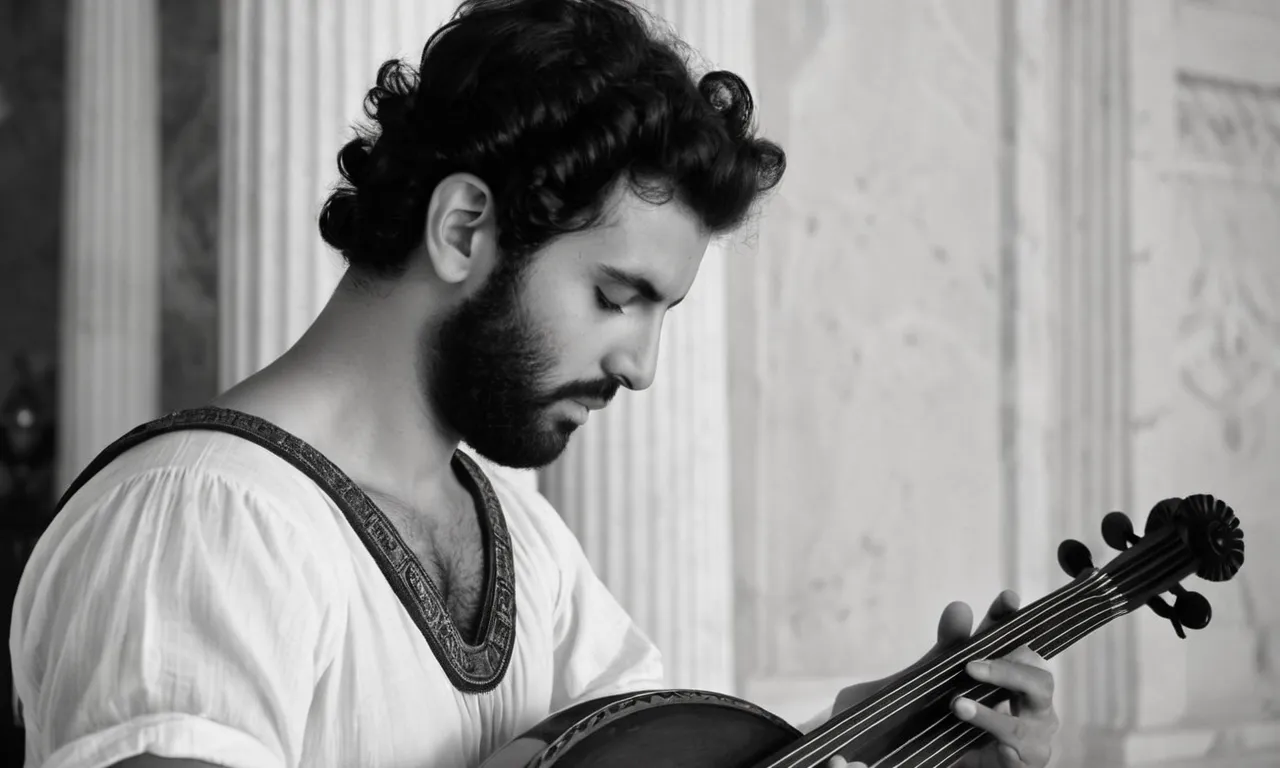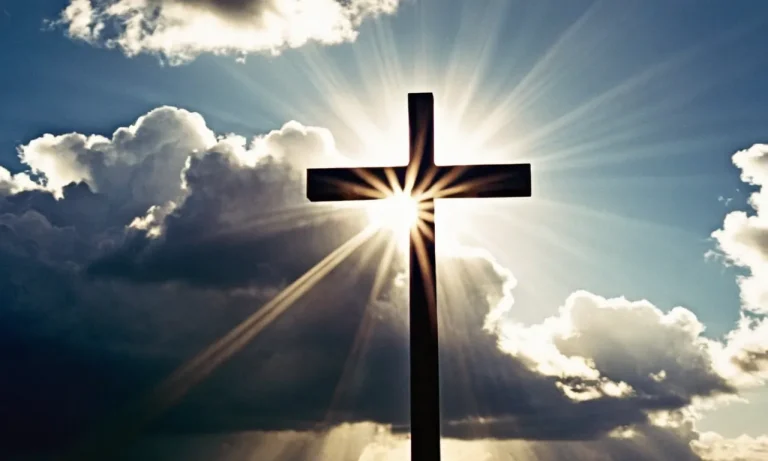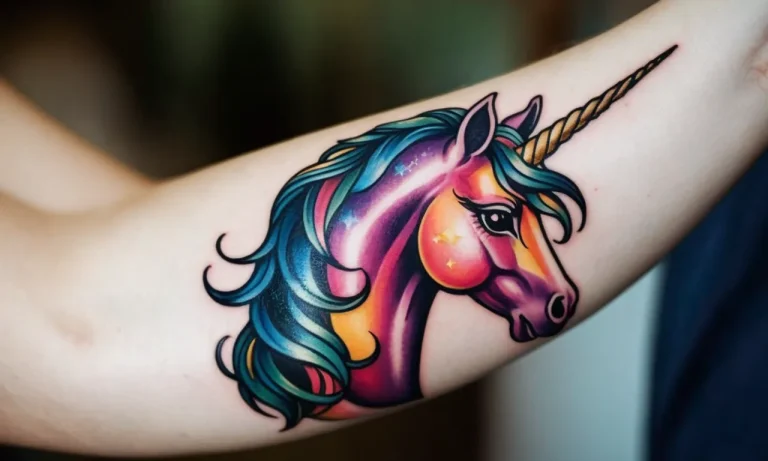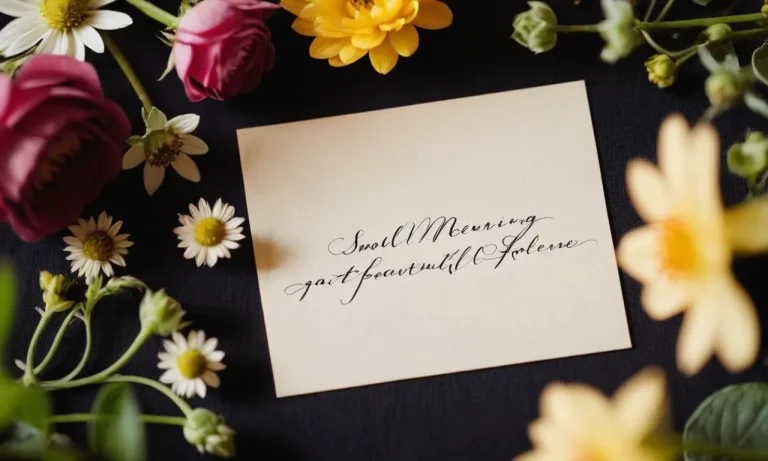Who Is The Greek God Of Music?
Music has been an integral part of human civilization since ancient times. The ancient Greeks, with their rich cultural heritage, had a god for almost everything in life including music. If you’re short on time, here’s a quick answer to your question: The Greek god of music is Apollo.
In this comprehensive article, we will explore the prominent role music played in ancient Greek society and dive deep into the mythology surrounding Apollo, the god associated with music and arts. We will learn about Apollo’s origins, his attributes, symbols, powers, roles, and exploits as recounted in ancient Greek sources.
We will also take a look at the influence of the cult of Apollo on music and poetry in ancient Greece. So read on to uncover the fascinating mythology around the classical god of music!
The Prominence of Music in Ancient Greek Society
Music and Occasions
Music played an integral role in ancient Greek society. From religious ceremonies to theater productions, music set the tone and mood for many occasions. For example, certain instruments like the aulos (an ancient Greek wind instrument) were played during sacrifices to invoke the gods.
Choral singing and lyre playing featured prominently in festivals and competitions like the Pythian Games dedicated to Apollo. Even soldiers marched into battle to the sound of auloi playing marching rhythms!
Musical Instruments
The ancient Greeks used a variety of musical instruments including string instruments like the lyre and kithara (an early type of guitar), wind instruments like the aulos and syrinx (pan pipes), and percussion instruments like the tympanon (hand drum).
The lyrical tones of the bowed lyre made it a favorite for solo song and poetry recitation. Ancient Greek musicians showed great creativity in their instrument designs – the hydraulis, an early keyboard instrument and precursor to the organ, used water pressure to produce sound!
Poetry and Music
Poetry and music were deeply connected in ancient Greek cultural life. Many poems and songs were intended to be sung rather than recited. Famous lyric poets like Sappho, Pindar, and Anacreon composed verses that expressed strong personal emotions and were performed to the accompaniment of stringed instruments at banquets and festivals.
Epic poets like Homer did not necessarily intend for their long narrative poems to be sung, but a musical element still informed the poetic meter and rhetorical qualities of these great works that had such influence across ancient Greek society.
The mythical musician Orpheus was hailed as an ideal poet, representing the ancient Greek reverence for musical language.
Apollo – The Greek God of Music and Arts
Apollo’s Origins and Family
Apollo was one of the most important Olympian gods in ancient Greek religion and mythology. He was the son of Zeus, the king of the gods, and Leto, a titan goddess. Apollo had a twin sister named Artemis, who was the goddess of the hunt and wilderness.
According to Greek mythology, Apollo was born on the island of Delos, which was sacred to him. Leto faced jealousy from Hera, Zeus’s wife, who tried to prevent the birth of Apollo. But with the help of Poseidon, Leto found refuge on Delos where she safely gave birth.
Attributes and Symbols of Apollo
Apollo was considered to be the most Greek of all gods and was recognized as the ideal of kouros (a beardless, athletic youth). He was depicted as eternally young and handsome. Apollo’s symbols include the lyre, bow and arrows, laurel wreath, raven, and the sun.
Here are some of Apollo’s main attributes and symbols:
- Lyre – Apollo was the god of music who invented the lyre. Images of Apollo frequently showed him playing the lyre.
- Laurel wreath – Apollo wore a laurel wreath on his head. Laurel leaves were believed to have prophetic powers.
- Bow and arrows – Apollo was skilled in archery and used a silver bow with golden arrows. His arrows could bring disease and death.
- Raven – Ravens were considered prophetic birds associated with Apollo. He sometimes sent them out as messengers.
- Sun – Apollo was closely connected to the sun, sometimes even considered as the god of the sun.
Apollo’s Roles and Powers
Apollo had many roles and powers in Greek mythology and religion. Here are some of his main domains:
- God of music and arts – Apollo was the leader of the muses, inspiring music, poetry, and the arts.
- God of prophecy and oracles – He gave the gift of prophecy to mortals and communicated prophecies through various oracles.
- God of medicine and healing – Apollo was a great healer who could cure plagues and promote health and wellbeing.
- God of archery – He was unmatched in his skill with the bow and arrow.
- God of light and truth – Apollo represented the illumination of truth and reason, dispelling darkness.
Some major centers of Apollo’s worship like Delphi and Delos were pilgrimage sites for ancient Greeks. His oracle at Delphi was revered for giving cryptic prophecies. The Greeks also celebrated festivals like the Pythian Games in his honor.
Apollo and the Muses – Patrons of Music and Poetry
Mythical Origins of the Muses
In Greek mythology, the Muses were the nine goddesses of inspiration who presided over song, dance, music, poetry, history, and the arts. They were the daughters of Zeus, king of the gods, and Mnemosyne, the goddess of memory.
According to Hesiod’s Theogony, the oldest known source on the Muses, they were born on Mount Helicon and raised by the springs of inspiration that flowed from the mountain.
The Muses were believed to provide inspiration to poets, philosophers, and artists. Their presence was essential for the creation of masterpieces and great works of art. It was said that when the gods wished to bestow a special gift upon a mortal, they would send one of the Muses to be their inspiration.
The Nine Muses and their Domains
Each of the nine Muses was associated with a different domain that reflected their areas of specialty. They are:
- Calliope – Epic poetry
- Clio – History
- Erato – Love poetry
- Euterpe – Music and lyric poetry
- Melpomene – Tragedy
- Polyhymnia – Sacred poetry
- Terpsichore – Dance
- Thalia – Comedy
- Urania – Astronomy
Of the nine, Euterpe is most closely associated with music as the muse of song and lyric poetry. According to the Greek writer Pindar, it was believed that when musicians called upon Euterpe during performances, she would inspire grace and beauty in the music they created.
Temples and Festivals of the Muses
The Muses were worshipped throughout ancient Greece, particularly by poets, philosophers, and artists seeking divine inspiration. There were temples dedicated to the Muses on Mount Helicon, Mount Parnassus, and other sites around Greece.
Major festivals honoring the Muses were held annually. The most significant was the Thespiae, an ancient dramatic and musical competition festival held near Thebes. Contests were held for musicians and poets to compete for prizes.
Statues of the Muses were paraded through the city streets amid singing and dancing in their honor.
Another festival for the Muses was the Museia, held in Athens. It featured musical contests as well as offerings made to the goddesses in return for inspiration. Sacrifices of libations, milk, and honey were made at the altars of the Muses.
The Muses thus occupied an important place in ancient Greek society as patron goddesses of the arts and inspiration. Their mythical origins gave rise to vibrant worship and celebrations that honored music and poetry as divine gifts of the gods.
Influence of Apollo and the Muses on Music and Poetry
Musical Contests and Performances
Apollo was considered the leader of the Muses and presided over many musical contests and performances in ancient Greece. The most famous perhaps was the Pythian Games held every four years at Delphi to honor Apollo in his sanctuary there.
This festival featured musical, athletic, and poetry competitions. Winners were bestowed wreaths of laurel, Apollo’s sacred plant. Huge crowds gathered to hear poets recite verses and musicians play instruments like the kithara and aulos.
Apollo and the Lyre
According to myths, Apollo created the lyre after Hermes invented it, and Apollo became extremely skilled at playing this instrument. Images of Apollo often depict him holding a lyre. He taught the Muses the art of lyric poetry to sing with lyre accompaniment.
Greek poets used lyric style and meter in odes, songs, and elegies they dedicated to Apollo. Famous poets like Sappho, Anacreon, and Pindar composed lyrics honoring Apollo and invoking his aid with their poetry.
Poetic Meters Named After Apollo
The Greeks also named metrical feet used in poetry after Apollo, like the Ionic and Phrygian meters. Over time, the Phrygian mode especially became important in music along with the Lydian mode. Composers utilized both these modes created under the influence of Apollo in writing melodies and passages to evoke emotional responses from listeners.
Tragedies performed on stage with chorus songs were presented in theaters honoring Dionysus and Apollo – showing how both gods promoted the arts.
Conclusion
In conclusion, Apollo was revered as the Greek god associated with music in ancient mythology. As the leader of the Muses, he embodied the divine inspiration behind the arts. The cult of Apollo had a profound influence on musical performances, instruments, and poetry in Greek society.
Though millennia have passed, Apollo’s lyre remains one of the most enduring symbols of music and poetry in Western culture. The Greek myths leave us with a rich legacy surrounding the divine patrons of the arts and highlight the central role of music in the lives of ancient Greeks.








